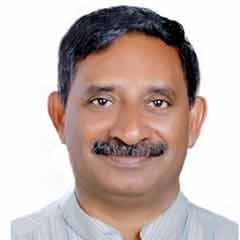Wayanad disaster enforces need for integrating local weather warning systems

Mail This Article
Kalpetta: The devastating landslide that partially wiped out Mundakkai and Chooralmala villages has forced the need for a change in approach in following weather alerts. The existing centralised macro-level predictions will not be enough to address the challenges posed by nature in the post-global warming era, it is pointed out.
The micro-level weather monitoring systems in Wayanad under the Hume Centre for Ecology and Wildlife Biology had warned of landslides in certain areas as early as 16 hours in advance when heavy showers crossed 400 mm rainfall in the landslide-prone zone.
Interestingly the ‘Red Alert’ of the Indian Meteorological Department (IMD) came at 6 am on July 30, only after the landslide had washed off two villages with hundreds of inhabitants, houses, mosques, schools, and temples along with part of the township.
One key aftereffect of faulty weather predictions is that the authorities always go by the rule book and disregard local-level warnings.
The local weather monitoring systems developed by the Hume Centre for Ecology and Wildlife Biology had alerted of a possible landslide one day before the disaster. The DDMA had continued its lethargic attitude as the IMD had issued only an Orange alert.
The lone warning message that came from the DDMA was issued by 10:35 pm on July 29, asking people living on the banks of rivers to remain on alert.
According to scientist Dr Abhilash S, Department of Atmospheric Science at CUSAT, the indigenous wisdom of tribal communities and traditional farmers could be counted as they used to come across the slightest of changes in nature and can translate them into warnings to others.
“I came to learn that the tribals of Punchirimattam were the first to warn the people downstream of an imminent landslide and they had shifted to rock caves for safety. In the era of Global warming and erratic climatic phenomena, we should switch to decentralized weather monitoring patterns especially in the case of rain that too in the Western Ghats region,” he said.
“If we look at the rain data during the last few years, in the Western Ghat region, if a particular spot receives an alarming 500 mm of rain within two days, an adjacent spot will be getting only around 200 mm of rain. So it is time we should also change our approach from macro-level monitoring and forecast, to micro-level weather monitoring systems,” he added.
Hume Centre director C K Vishnudas said that as there was no action at the ground level he had personally alerted District Panchayath President Samshad Marakkar. Acting upon the alert Marakkar along with Meppadi panchayath president K Babu, had initiated an evacuation of tribals and a few families from Punchirimattam at their own risk. “I have a strong feeling that though none of us expected a catastrophe of such a magnitude, the death toll would have been reduced if we had acted in time to evacuate people,” Vishnudas added.
Wayanad District Panchayath president Shamsad Marakkar said that instead of neglecting the local-level weather monitoring network and terming it amateur, they should be integrated with the system by imparting state-of-the-art training under the guidance of experts. “It would be easier for the state government to gather weather data as the three-tier administrative bodies could also contribute to training volunteers and installing weather tracking units,” he said.
Pravitha, a Mundakkai native who had a miraculous escape in the landslide said that almost all of them were on high alert as they knew that a landslide was imminent.
“By evening there were minor landslides and the colour of the stream had changed with water turning muddy. Tribals from the hills also warned of some unusual sounds from the earth. We had remained at home as we had no other place to shift. If some officials had told us that we could shift to some camps we would have shifted at that moment itself,” she said.
On July 29, by evening many families voluntarily left for safer places from the banks of the river at Chooralmala.
Muhammed Nabeel, a survivor of the landslide who lost his home to the fury of the river said that they had left home by nightfall. “We were afraid of something horrific as the behaviour of the stream - the running sound, speed, colour and the total ambience of riverside had changed. When I returned I saw only mud and slush in place of my home,” he said adding that only the panchayat members alerted them to shift at least for the night.


